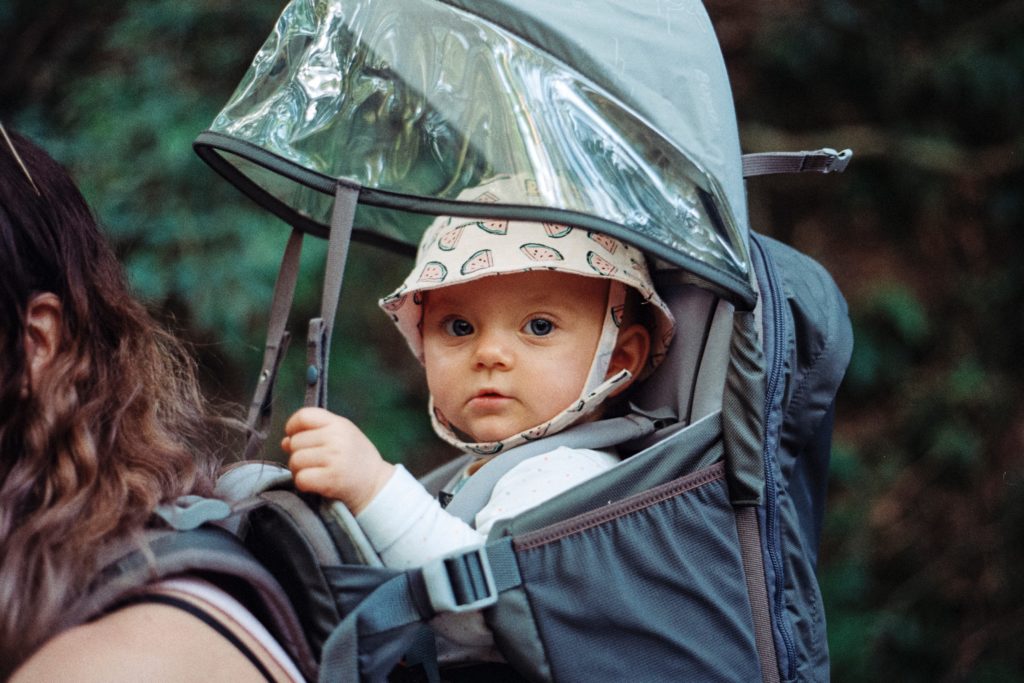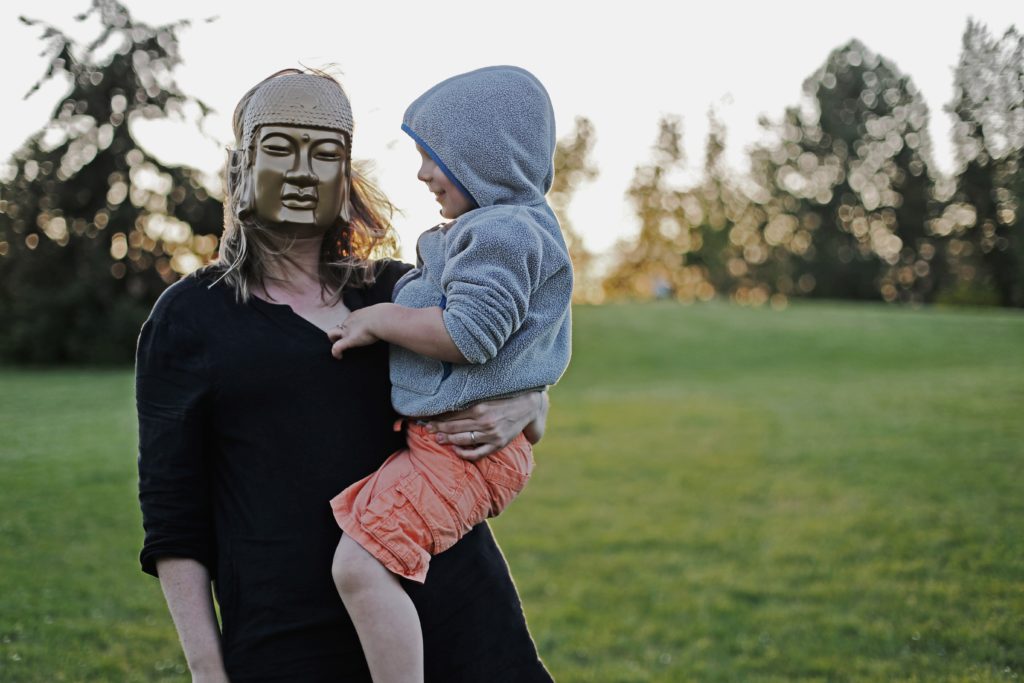![]()
This very rational type can seem a little standoffish in all circumstances and this doesn’t usually change when it comes to their children. INTPs will always struggle with the emotional side of human relationships, but that doesn’t stop them from being dedicated and focused parents who try to give their children the best start in life possible.
General Overview
INTPs often find parenting quite difficult. They’re not very good with emotions and tend to approach the world with calm rationality. As a result, caring for a small person who isn’t capable of reacting rationally to things can frazzle them. INTP parents will constantly have to work against this issue if they want to give their children the support they need. And they really do want to give this support, they just don’t know how to do it. In fact, INTPs are incredibly dedicated to their children, which can surprise some people, but this type often has a strong protective streak for the weak and the helpless and children tend to activate that instinct. As a result, INTPs will work hard to understand their children but might need the help of someone who’s more emotionally aware to help them do it.

“INTPs are incredibly dedicated to their children, which can surprise some people, but this type often has a strong protective streak for the weak and the helpless and children tend to activate that instinct. “
Photo by jens johnsson on Unsplash
Household Organization and Discipline
INTPs value knowledge and understanding above all things and this will be a running theme in how they parent their children. INTP parents are very demanding in this sense alone. They don’t mind what other life choices their children make, but they do demand that they have the ability to think and reason well. This lack of rigid structures can be a problem when an INTP’s children are young. This type doesn’t like routines at all and may give even very young children more space and freedom than is healthy. They need to learn to juggle their own preferences with the reality that children do need boundaries and discipline to grow in a healthy and well-adjusted way.
The INTP and Emotional Support
It can’t be said often enough. INTPs will always struggle with giving emotional support and a sense of emotional connectedness to their children. This type uses introverted thinking, which is reliant on pure facts and data. In contrast, their feeling function is extraverted feeling, their tertiary. And as a result, their emotions usually only surface as outbursts when they’re upset or angry. This doesn’t help them to relate to their children on any real emotional level. INTPs can work hard at their emotional intelligence and improve their skills, but they’ll never be very good at it and will benefit from a partner who can make sure their children have these needs met.

“INTPs can work hard at their emotional intelligence and improve their skills, but they’ll never be very good at it and will benefit from a partner who can make sure their children have these needs met.”
Photo by Jonathan Daniels on Unsplash
The INTPs Engagement Level
INTPs will be very involved in their children’s academic and intellectual life. This is what they’re most concerned with as people and as parents, and they consider it to be their main responsibility as a parent as well. As a result, the INTP will try to teach their children constantly, through example and with actual lessons, and will see any academic activities as a good way for their children to spend their time. To an INTP, helping their children develop their intellectual prowess is the most important way they can help their children and they’ll be tirelessly dedicated to this cause.
The INTP and SJ Children
SJ children need structure and routine. They don’t feel safe without clear boundaries around their behaviors, their choices and their schedules. But INTPs will avoid putting these boundaries into place at all costs. Their openness to ideas, their autonomous nature and their desire to see their children develop naturally and without restrictions can feel very threatening to SJ children and may leave them feeling insecure. An INTP parent will need to learn to put more boundaries in place than they would like with these children, and will probably always push them to move beyond a need for them. This can create conflict, particularly as the SJ child grows up, but to an INTP it’s an important facet of a rational adult.
The INTP and SP Children
INTP parents provide an environment that’s open and intellectual and SP children will thrive in it. They enjoy the lack of structures and routines and the encouragement to explore the world and find out for themselves what it’s about. And INTP parents will cherish this quality in their children and encourage it with all their strength. However, they will find their children’s focus on the moment and on action a bit frustrating. INTPs prefer to think above all else, and they love intellectual debates more than anything else in the world. In contrast, SP children like to be out doing things, or at least discussing concrete ideas. And the INTP will find this very limiting, and try to push their SP child to think beyond those boundaries.
The INTP and NF Children

“If the INTP wants their child to be well-adjusted, they will have to learn to let their barriers down a little and connect emotionally. This is absolutely possible for this type, but it will take time and practice.”
Photo by Ksenia Makagonova on Unsplash
NF children often find their INTP parents distant and unemotional. This is a common problem with the INTP type in any human relationship, and a major barrier to this relationship. INTPs just don’t have the emotional intelligence to bond on the level that an NF child prefers and they often don’t want to either. To an INTP, their emotions are private. Even with their closest friends and partner they prefer to keep some things private, and an NF child can often take that distance personally. But if the INTP wants their child to be well-adjusted, they will have to learn to let their barriers down a little and connect emotionally. This is absolutely possible for this type, but it will take time and practice.
The INTP and NT Children
An NT child will be an INTP parents’ dream. They’ll share the same preference for rational thinking and learn a lot from the INTPs very careful way of thinking and discerning the truth. As the NT child grows, the INTP will find a willing partner in intellectual debates and someone who will always be happy to learn from them or with them. One potential drawback to this connection is their shared tendency to ignore the importance of emotions, and this is something the INTP parent will need to be aware of. Even NT children need to have their emotional needs met or risk becoming extremely dysfunctional, but they may not always want to accept this reality when they’re young. So the INTP will need to take care that this need is met until their NT child gains the ability to understand and do it on their own.
Final Thoughts
INTPs aren’t natural parents but that doesn’t mean they aren’t good ones. This personality type are quiet and patient, two traits that can help them deal with the over emotionality of children, and they’ll need these traits when it comes to parenting. INTPs will also need help with the emotional side of the parent child relationship, and as long as they have that they can focus on helping their child develop their intellect. And this is what INTPs enjoy the most, and are really good at doing as well.
References
- Storm Susan. “Understanding INTP Thinking“. Feb 27, 2017. (Retrieved Feb 2018).
- Stafford Scott. “The INTP’s Guide to Dealing With Emotions“. Aug 6, 2015. (Retrieved Feb 2018).
- “INTP – The Scientist“.